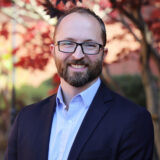In the summer of 2022, Psychology Today published an article entitled: The Myth of Mental Health Diagnosis:
Disagreement between clinicians is the norm, not the exception. Just let that title sink in for a moment. But not just the title, consider that article is being published. Psychology today styles itself as, “the world’s largest mental health and behavioural science destination online.” And claims to be, “the world’s largest portal to psychotherapy; it includes free access to hundreds of thousands of professionals.” From the title and the opening sentences, Biblical Counsellors can take three important things to encourage us in our convictions.
Mental Diagnosis is a Myth
That is not from the mouth of a counsellor using the Bible, that is from a Psy.D. writing for Psychology Today. For anyone who considers themselves a Biblical Counsellor, very little stock is placed in a diagnosis by the mental health community. Those affixing the labels that many counselees come in with may have coined terminology that is helpful for many in society to use, but when it comes to treatment, causes, and solutions, those are often completely lacking. Simply put, an article like this reassures us that much of the modern method of caring for the souls of people is built on sand.
The author is William Hwang, Psy.D. He cites several studies in his article and opens with this question and then statement,
“You would think it would be fairly obvious if someone is depressed, right? Wrong. Highly trained psychiatrists who independently evaluated an individual could only agree that the person had depression between 4 and 15 percent of the time.”
Why this article is so revealing is because it boldly states that no stock can be put into a diagnosis. Why? Because the majority of the times the diagnosis you receive from one practitioner will be different if you visit another practitioner.
Psychology is built on the ground that the DSM (Diagnostic and Statistical Manual of Mental Disorders) is objective, and will guide it’s users to produce a standard diagnosis that can be used for treatment. While Biblical Counsellors could see that the entire discipline was built on such subjective changing interpretations of the world, they are coming to terms with it in their own research.
There is widespread disagreement between practitioners
The entire premise of the DSM is built on standards. Those standards are meant to ensure conformity; they do not. What Dr. Hwang is arguing is that the diagnosis should not be seen as a rigid criterion like it would be if you went to an oncologist, but rather something else.
“This does not mean that diagnoses are completely useless, but it does mean we should treat them less literally and understand that two clinicians may be looking at the same symptoms but seeing and naming them differently based on different contexts, which can include the clinician's own biases, differences in training, and what the client chooses to report.”
Notice he acknowledges that two people, seeing “the same symptoms” will come to different conclusions. This also shows us how subjective the experience is for a person practicing any form of modern psychology. It is so subjective because it is based on the counsellor's own interpretation and a number of factors. Again, Hwang understands this, while at the same time attempting to not throw out the DSM.
Notice what Dr. Hwang is admitting yet advocating for. He agrees that this is very subjective, but his remedy to this is not to take a diagnosis literally. He is essentially arguing that when a person comes in and has been labelled a particular way, everyone understanding that label should not take it literally. He would conclude,
“All of this is to say that perhaps we should take mental health diagnoses with a grain of salt. You may get one diagnosis from one clinician and find that if you go to another one, you may get a different one—or a few extra ones. Some clinicians can tend to diagnose people more often with depression, while other clinicians can diagnose people with anxiety.”
Just notice the breathtakingly honest assessment of the subjectivity of the diagnosis process. Psychology has attempted to style itself like a hard discipline like medicine. However, when you visit a medical doctor at a hospital because you believe that you have broken your ankle, an X-Ray is ordered and then a doctor interprets the X-Ray. Any doctor who is competent will come to the same conclusion.
For Biblical Counsellors who focus on the heart and not diagnosis of symptoms, we should be reassured in our convictions of the sufficiency of scripture and the methodology that we believe in that flows from our study of God’s word.
Don’t expect change to the field
While Dr. Hwang should be commended for his brutal honesty, very little will likely change. Psychology and all the various disciplines attached to it need to have a diagnosis for two reasons: (1) they need to be able to bill and (2) they need a diagnosis for a treatment plan. While there may be massive problems with the field, no one is advocating for the abolishment of the DSM. Rather, instead Dr. Hwang argues that diagnoses should be seen through a post-modern worldview. “Let's realize that our perceptions are subjective and that there can be multiple truths.” While we all have a level of subjectivity in our lives, to argue that the only solution here is to assume that everyone is right, will only lead to further chaos and harm done for those under the care of a psychologist.
Let us as Biblical Counsellors redouble our efforts to think clearly about how people are being cared for in this world. When a counselee shows up with a diagnosis, remember that even in the lips of their own, that diagnosis holds very little weight. Let us be a people that seeks to get it right, knowing that there is an objective standard of truth: God’s word. And by using that standard, we can provide the best care to the person sitting across the table from us.

